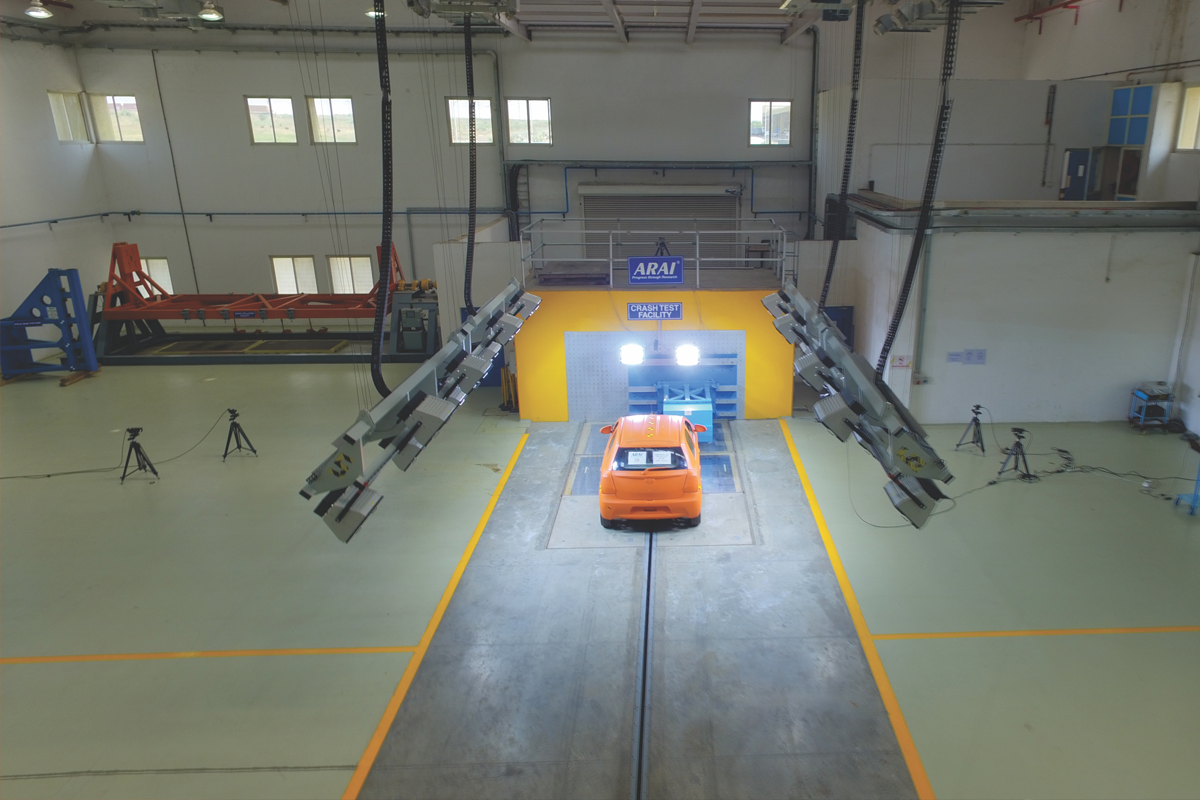Everything you need to know about the Bharat NCAP
The parameters of Bharat NCAP have been finalised by the Indian government, aligning them with global crash test protocols
 As per Union Minister Nitin Gadkari, Bharat NCAP enables Indian manufacturers to test their vehicles locally and boosts the export potential of Indian automobiles
As per Union Minister Nitin Gadkari, Bharat NCAP enables Indian manufacturers to test their vehicles locally and boosts the export potential of Indian automobilesBharat NCAP, India's much-anticipated crash safety rating system for cars, is scheduled to come into effect on October 1, marking a significant milestone in the Indian automobile industry. This indigenous automobile safety testing takes inspiration from the Global NCAP, a programme that has been widely praised for its potential to enhance road safety and save lives worldwide.
Under Bharat NCAP, cars produced and sold in India will be subjected to rigorous crash tests to evaluate their crashworthiness and overall safety performance. While participation in the testing programme is voluntary for manufacturers, they are strongly encouraged to submit sample vehicles for evaluation. These vehicles can be either provided by the manufacturers themselves or randomly selected from authorised dealerships by the testing agency.
The Bharat NCAP crash test ratings will be applicable to vehicles with type approval for up to eight-seater models, including the driver's seats. Vehicles with a gross vehicle weight lower than 3.5 tonnes, whether manufactured or imported in India, will have to undergo the Bharat NCAP crash tests. This ensures that the safety assessments are applicable to vehicles that are commonly used and available in the Indian market.
The process of submitting a model for crash testing is straightforward. Manufacturers initiate the application by providing details of the model to be tested. Once the application is accepted, the Bharat NCAP authority selects the model for evaluation. After the crash test is conducted, the results are communicated to the respective OEM (Original Equipment Manufacturer). These results can be made public, and manufacturers have the option to request a reassessment if necessary. Additionally, the Bharat NCAP has the authority to independently acquire models from showrooms for crash testing, further enhancing the transparency and credibility of the programme. Bharat NCAP will also have testing facilities for CNG and electric vehicles.
The crash testing under Bharat NCAP encompasses three main types of tests: the Offset Deformable Barrier Frontal Impact Test, the Side Impact Test, and the Pole Side Impact Test. These tests thoroughly assess the vehicle's ability to protect occupants during various collision scenarios.
The safety ratings assigned by Bharat NCAP are divided into two categories: Adult Occupant Protection (AOP) and Child Occupant Protection (COP). To achieve the coveted 5-Star safety rating for Adult Occupant Protection, a vehicle must amass a minimum of 27 points during testing. Similarly, a 5-Star rating in Child Occupant Protection requires a score of 41 points.
The introduction of Bharat NCAP is expected to bring several advantages to the Indian automotive landscape. Firstly, it provides an alternative to the expensive Global NCAP crash testing, offering local manufacturers a more accessible and cost-effective option for safety evaluation. Secondly, the programme is likely to spur the development of safer vehicles as automakers strive to achieve higher safety ratings and gain a competitive edge in the market.
The successful implementation of a large-scale testing programme like Bharat NCAP poses challenges that require significant infrastructure and budgetary support. Comprehensive crash tests necessitate specialised facilities with advanced technology and testing equipment, which demand substantial financial investment. Moreover, coordination among regulatory authorities, testing agencies, and automobile manufacturers is crucial for a standardised and rigorous testing process. Additionally, addressing the inadequate transport infrastructure in major cities is essential to support the rollout of Bharat NCAP effectively and ensure its positive impact on vehicle safety in India.


